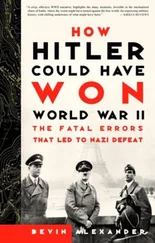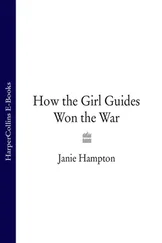At Versailles, the Austro-Hungarian Empire that had once held chaotic sway over a swathe of central and southern Europe was dismembered; only its fairy-tale capitals, Vienna and Budapest, served as reminders of the lost imperial splendour of the Habsburgs. Similarly, the Ottoman Empire – ‘the sick man of Europe’ – which had been fraying at the edges well before the outbreak of war saw its Balkan possessions confiscated by the victors and redistributed among its quarrelsome constituent parts. The turbulent despotism of the Russian Empire had succumbed to a Bolshevik revolution; Czar Nicholas II, the last of the Romanovs, had been assassinated and the largest nation on the continent was now consumed by civil war. No less spectacularly, the German colossus that, under the last of the Kaisers, Wilhelm II, had bestrode Europe for a generation, was broken and humiliated.
The peoples of Europe who had previously endured the certainty of imperial edicts were adrift amidst the swirling detritus of a war in which there had been more than 40 million casualties, including some 10 million soldiers killed on the battlefield and more than 6 million civilians behind the front lines. A further 10 million people had been internally displaced or were criss-crossing the new borders – hastily established at Versailles – as refugees in search of safety, shelter and food. Though some countries enjoyed a post-war boom that engendered a cautious optimism, much of Europe’s economy lay in ruins. With unemployment rampant and destitution commonplace, grief and misery prevailed. It gradually became clear that Versailles, foundering on the rocks of high-minded self-delusion, had failed to achieve its brave purpose: the creation of a bedrock for the resolution of this existential crisis.
The most ambitious vision to be mooted at the Paris Peace Conference had been the creation of an international forum for global security based on the assumption that all states might be persuaded to replace their instinct for self-preservation with the disinterested quest for international harmony. In deference to President Woodrow Wilson’s romantic notion that thereby the world could finally be made ‘safe for democracy’, this morally impeccable vision was embodied at Versailles by the formation of the League of Nations. This was a grandiose scheme but far too fragile to withstand the violent aftershocks of the 1914–18 earthquake.
Its fragility had become cruelly apparent soon after President Wilson returned from Versailles to Washington boasting to the Senate that ‘at last the world knows America as the saviour of the world’. 2 This hubris may have flattered some American egos – relieved to be advised that their sons had not died on the European battlefield in vain – but the great majority of US senators were underwhelmed. More than that, they chose to adopt the guiding precept of their most revered founding father, George Washington, that the United States should in future avoid ‘entangling alliances’ with any other nation. Congress therefore refused either to endorse Wilson’s commitment to the League of Nations (which, in consequence, was terminally enfeebled) or to ratify the Treaty of Versailles wherein it had been begotten.
For almost two decades thereafter, the United States all but withdrew from the front line of European diplomacy in favour of a policy of detached neutrality, intervening only spasmodically – and self-interestedly – in the affairs of what for many Americans had become a faraway continent about which they knew little and cared rather less. It would not be until the outbreak of the Second World War in 1939 that President Roosevelt felt strong enough politically to inform a reluctant Congress that ‘entangling alliances’ had once again become unavoidable. fn1 In the meantime, the Europeans would have to find their own salvation.
Far from making Europe ‘safe for democracy’, the Versailles treaty served only to aggravate the tensions that, for numerous reasons, were very soon to envelop Europe. After many weeks of anguished and often angry wrangling, the victors finally confirmed the tribute to be exacted from the vanquished German leviathan. In the hope of eliminating for ever the threat of German revanchism, the newly constituted Reich – whose leaders had been excluded from the negotiations that sealed their fate – was to be stripped of all its conquests, hobbled militarily, weakened economically and punished financially.
When the elected leaders of the Weimar Republic were summoned to hear the sentence imposed on them their worst premonitions were confirmed. Their nascent democracy was required to surrender a great swathe of territory that either had formed part of Germany’s nineteenth-century empire or had been conquered during the war: Alsace and Lorraine were to be returned to France, the Rhineland was to be occupied by the Allies, the Saarland was to be placed under French administration for fifteen years and further territories were to be surrendered to Belgium, Czechoslovakia, Poland and Lithuania. It took five years before all the complex cessions of territory devised at Versailles were finally put in place. Though Versailles left the Reich still in possession of the largest landmass in Europe to the west of the Soviet Union, the Germans felt as though their great nation had been dismembered – an indignity compounded by the decision of the Allied Powers to confiscate their African colonies as well. The Reichswehr (the German Defence Force) was to be so pinioned as to turn an imperial war-making machine into a military police force, equipped with no more than 100,000 men and forbidden to manufacture or maintain armoured cars, tanks or warplanes. Even more controversially, the so-called ‘War Guilt’ clause imposed a punitive scale of financial reparations to compensate for the destruction that the Kaiser’s belligerence had provoked.
In the relevant section of the Versailles treaty, the opening paragraph – Article 231 – stated: ‘The Allied and Associated Governments affirm and Germany accepts the responsibility of Germany and her allies for causing all the loss and damage to which the Allied and Associated Governments and their nationals have been subjected as a consequence of the war imposed upon them by the aggression of Germany and her allies.’ The hapless leaders of the Weimar Republic faced a simple choice: either to accept these surrender terms or face invasion and occupation by the Allied Powers. They duly signed along the dotted line. Although this retribution was less extortionate than the victims would claim – Germany was not left quite as ‘prostrate and helpless’ 3 as was widely presumed – it was enough to incubate a deep bitterness in the national psyche at what was generally regarded as a cruel and vindictive punishment for crimes for which they believed they had not been responsible.
For different but no less divisive reasons, Russia had also been excluded from the Paris Peace Conference. Like President Wilson, Lloyd George was prone to sympathize with the uprising of the Russian proletariat against the tyranny of the Czars, which, he believed, sprang from a legitimate demand for a radical change from centuries of oppression. ‘To say that we ourselves should pick the representatives of a great people was contrary to every principle for which we had fought,’ 4 he advised the French prime minister, Georges Clemenceau. In so saying, he reflected a widespread popular attitude across Europe as well as in Britain. However, Clemenceau, who had been unyielding in his insistence that Germany deserved the punitive measures imposed at Versailles, insisted that any diplomatic dalliance with the Bolsheviks would feed a nascent appetite for revolution among Europe’s impoverished and alienated working classes.
The French leader’s disdain was echoed with great force by the British Secretary of State for War, Winston Churchill, who did not shrink from giving public expression to his animosity in the most colourful terms. ‘Civilization’, Churchill boomed into a crowd at an election rally in November 1918, ‘is being completely extinguished over gigantic areas, while Bolsheviks hop and caper like troops of ferocious baboons amid the ruins of cities and the corpses of their victims.’ 5 Unlike Lloyd George, Churchill believed that, far from being biddable, the new regime in Moscow was hell-bent on revolutionary conquest. ‘Of all the tyrannies in history, the Bolshevik tyranny is the worst, the most destructive, the most degrading,’ he instructed an audience in London, an outburst that prompted Lloyd George to reflect drily, ‘His ducal blood revolted against the wholesale elimination of Grand Dukes in Russia.’ 6 Ducal blood or not, in due course the future prime minister would be forced by events to adopt a very different tone towards the regime in Moscow.
Читать дальше
![Джонатан Димблби Barbarossa: How Hitler Lost the War [calibre] обложка книги](/books/385421/dzhonatan-dimblbi-barbarossa-how-hitler-lost-the-w-cover.webp)



![Traudl Junge - Hitler's Last Secretary - A Firsthand Account of Life with Hitler [aka Until the Final Hour]](/books/416681/traudl-junge-hitler-s-last-secretary-a-firsthand-thumb.webp)







